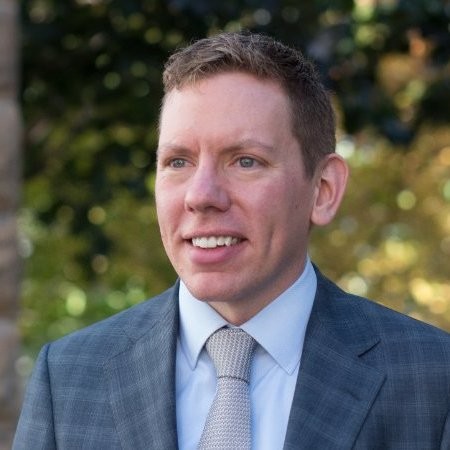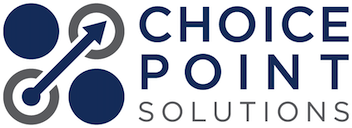A Choice Point Interview About Values, Decision-Making, and Leadership.

Choice Point: Hi, Matt. To start, tell our readers what you do. What’s the ‘networking-event’ explanation of your role?
Matt Fullbrook: I study, advise, talk about, and educate boards of directors and senior executives to help them make better decisions together.
CP: To get things rolling, let’s ask a couple of questions about you, and your career. Tell us about the values that got you where you are today. What are they, and why have they been crucial for you?
MF: Ooh, this is a really cool question. The list is very long, but I’ll focus on two things I’ve valued that stand out as having a sustained positive impact on my career: First, obsessive curiosity in general, but in particular about the second value I’ll list, which is understanding the impact of diversity – diversity of perspectives, demographics, skills, etc. Corporate governance is an area that tends to bring to mind policy, bureaucracy, structure, etc. For a lot of organizations it can be tempting to think of governance as a box-ticking event-driven exercise instead of a journey to identify and capitalize on cool opportunities. The best leaders I meet (board members, executives, whoever) are the ones who are sincerely curious about what they could do better tomorrow than they’re doing right now, and surround themselves with diverse and provocative people to make sure they see things from as many angles as possible.
CP: What’s your proudest professional achievement?
MF: It’s more of a circumstantial privilege than an achievement, but nonetheless… My first experience in front of a classroom filled with corporate directors was at age 25-ish, and I started providing advice to boards around the same time. I’m now 40 with nearly 20 years of experience thinking about governance. Unlike most of the other experts in the space, I still have a lot of runway. I’m proud that I established myself as a credible expert at such a young age.
CP: Choice Point Solutions is all about training for decision-making. Tell us briefly about a key juncture in your own career, or a dilemma you faced – a “go left or go right” moment – and tell us how you resolved it. What was it about you that let you get through it?
MF: I invest a significant amount of my time and energy – both professionally and personally – into building my relationships and community. In addition to the fact that I just like getting to know people, it also helps to mitigate the risks involved when I face difficult decisions. For example, I don’t often find myself struggling to choose whether to speak up or stand up for what I believe. There’s so much mutual trust with the people around me that they’ll let me know if I’m wrong and I will appreciate the feedback. Even in potentially critical situations, I can take stances that might appear provocative and do so with the confidence that things may not go my way, but that I’m still adding value to a bigger decision or project.
All that said, I’m currently living through the biggest decision of my career: leaving my position after 20 years. My community has been so supportive – even embarrassingly so – but it’s still terrifying!
CP: Without necessarily telling us who it is or was, tell us about the characteristics of one of your mentors. What was or is she or he like?
MF: I’ve had too many generous and inspirational mentors and don’t think they share many common traits – so maybe that’s my first insight: having a diverse group of mentors is awesome! That said, I do have one mentor who stands out in an important way. He’s the only one who – in addition to guiding, listening, praising, encouraging, opening doors, etc. – is completely unafraid to tell me when I’m screwing up and hold me accountable for doing better. It can be hard to hear, but I appreciate him *so* much.
CP: You spend a lot of time advising boards, which indirectly means advising companies. What’s the #1 thing for a company to keep in mind in supporting people to make ethical decisions in the workplace?
MF: I work mainly at the board level and the main thing that execs and directors fail to do is give themselves enough time and space to fully explore decisions. Without structure, multiple options to consider, enthusiasm for unpopular opinions, etc. it’s very difficult to make excellent decisions.
CP: We at Choice Point are very interested in education, so here’s something that will interest the students out there, the future leaders reading this: beyond the right education, what do young people need to do, in order to get to do the kind of work you do?
MF: I’m still trying to figure this one out, because the governance “industry” is desperate for a pipeline of young talent. My career materialized out of embarrassingly good luck and great opportunities. That said, the main mistakes I find young people making when they encounter senior business leaders are 1) failing to treat them like normal human beings (which they are!), and 2) entering the conversation with a self-serving agenda instead of simple curiosity. Sincere curiosity really goes a long way.
CP: Tell us a favourite book that you want to recommend, and explain why.
MF: My top recommendation from the past couple of years is Range by David Epstein. There’s a lot of bad insight out there about what expertise is and how to build it – Range does a tonne of valuable myth-busting.
CP: Tell us an on-topic blog or podcast or website that you’d like to recommend, and explain why.
MF: I don’t listen to many podcasts, but I have enjoyed No Stupid Questions with Angela Duckworth and Stephen Dubner.
CP: That’s all our questions, Matt. Thanks for sharing your insight!
Matt Fullbrook is a corporate governance advisor, educator & researcher. His most recent institutional role was as Manager of the David & Sharon Johnston Centre for Corporate Governance Innovation at the Rotman School of Management. You can find him at Board Effectiveness, and on LinkedIn here. Matt also has a really terrific podcast called One Minute Governance.
While you’re here, check out our Choice Point Interviews with other thought leaders.
